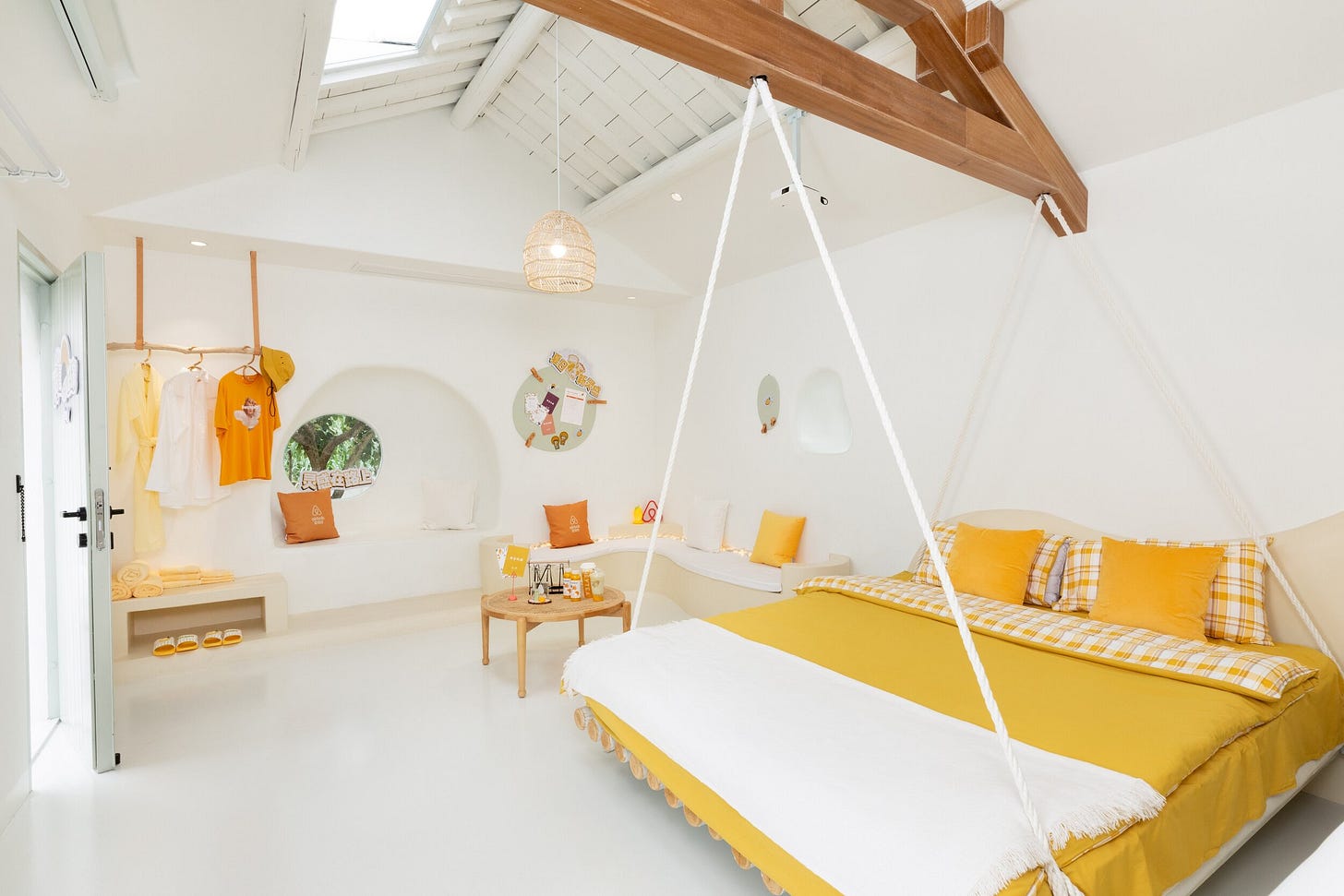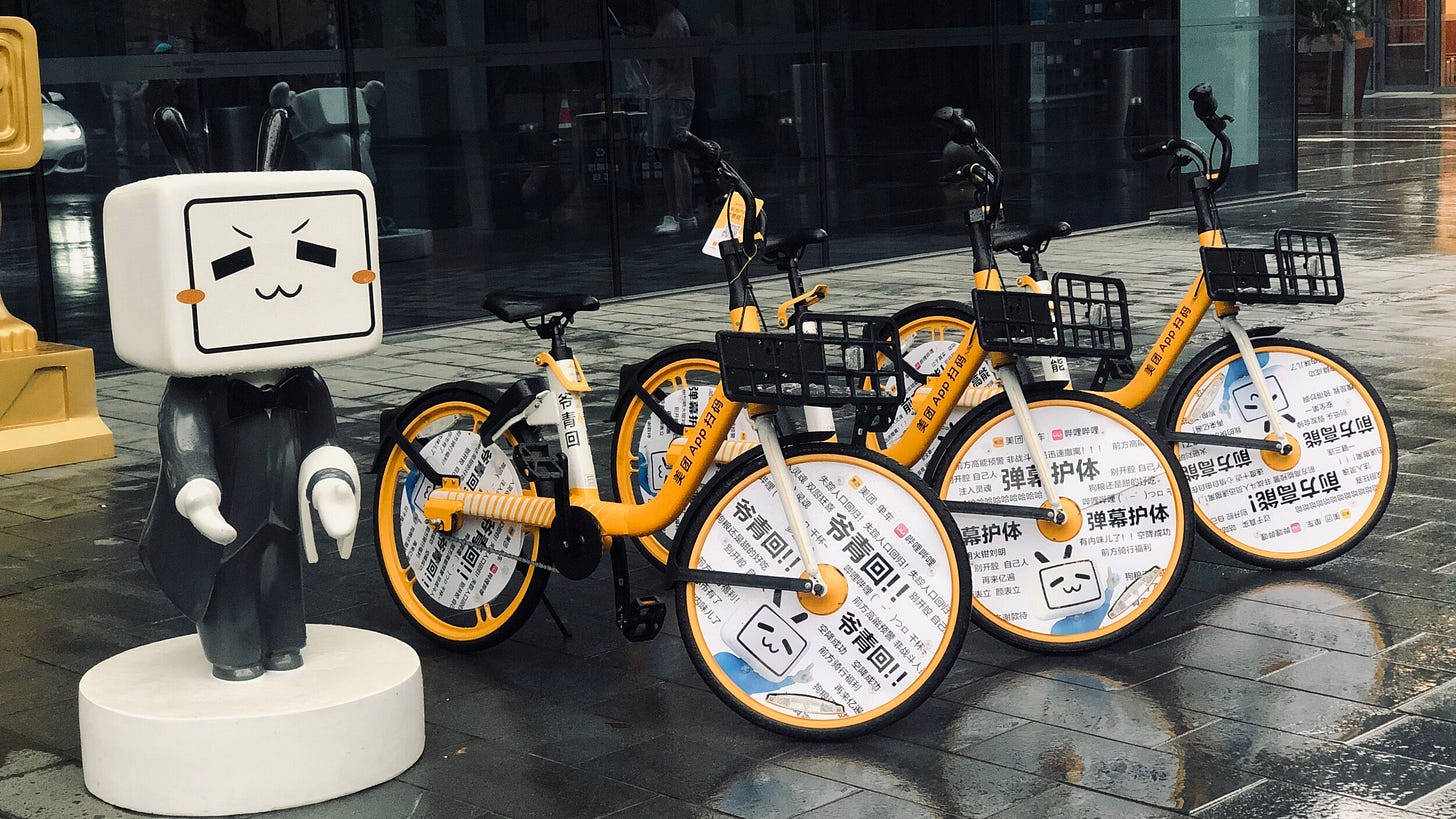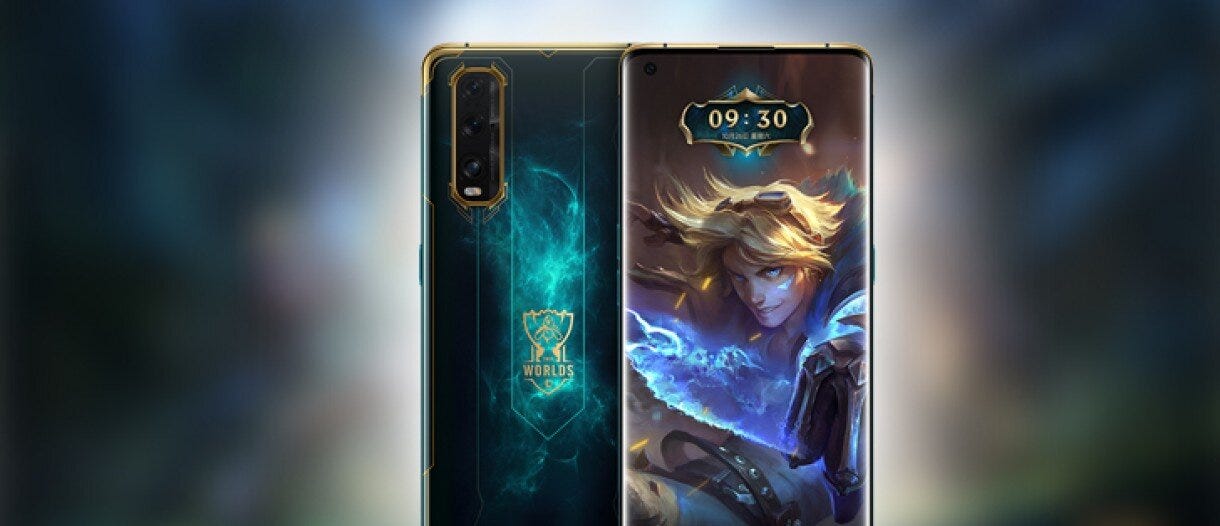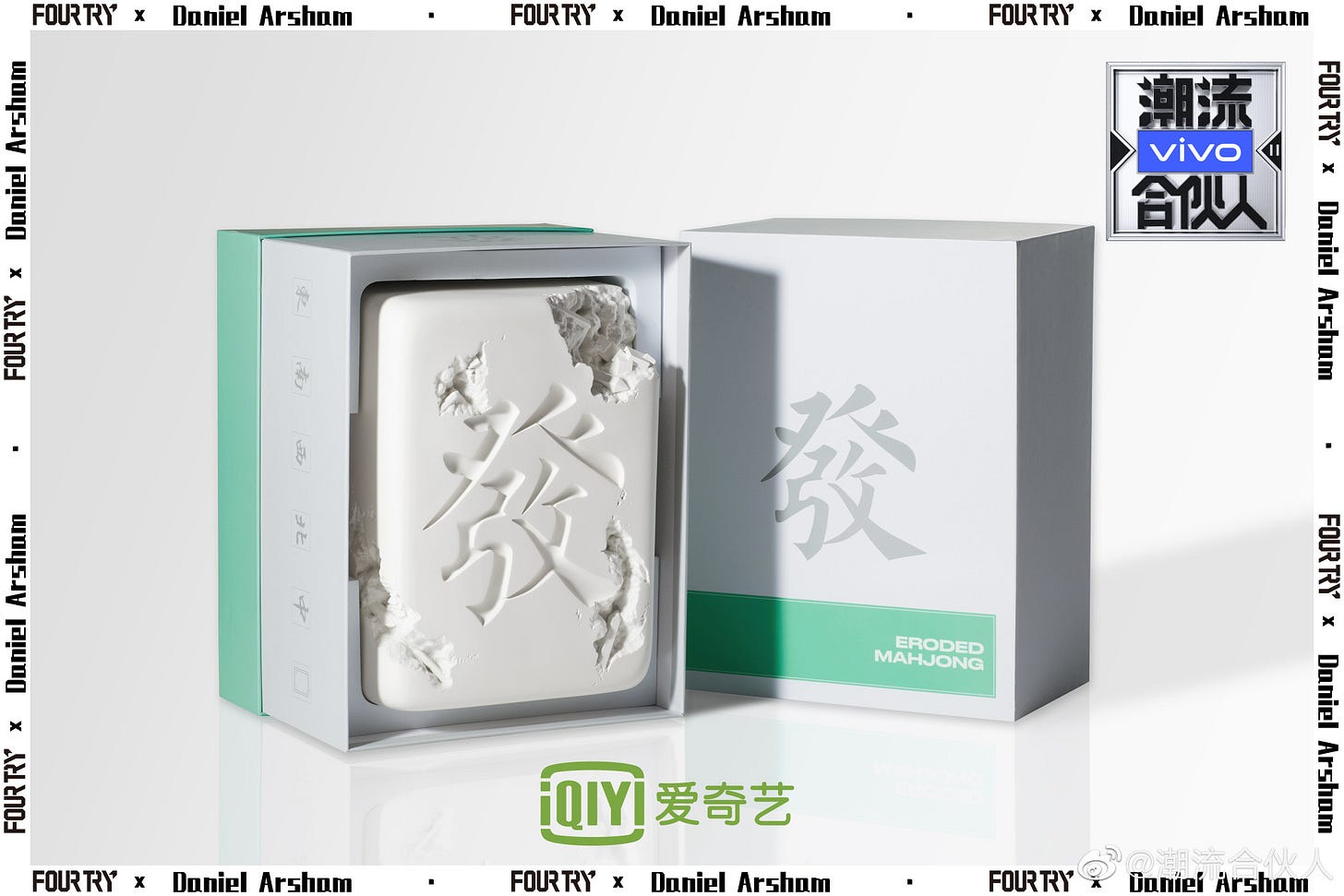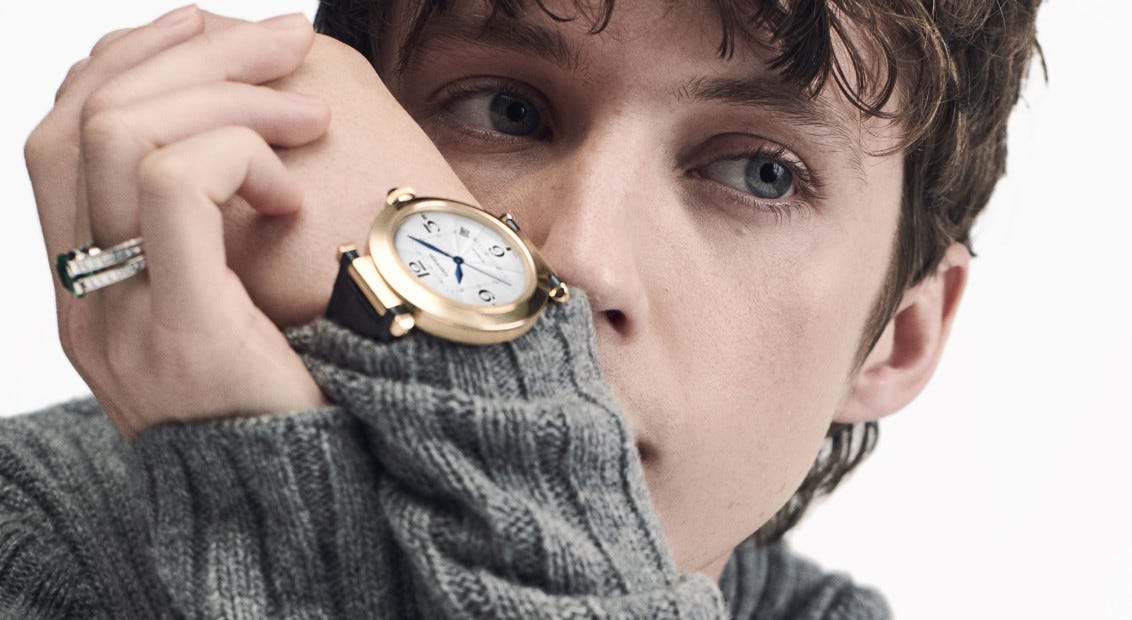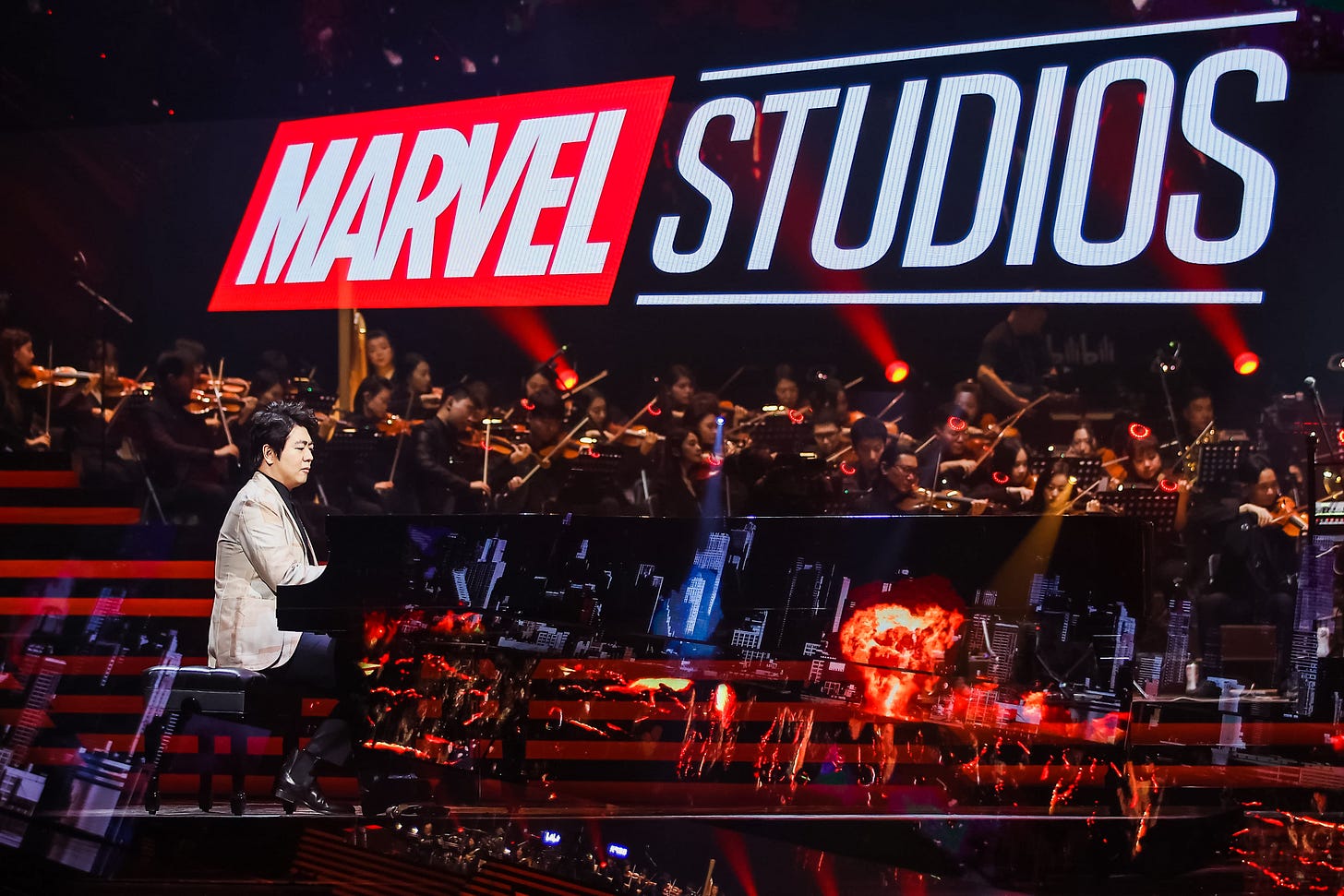2020 Best of Brand Collaborations
Plus: The luxury brand playbook for 2021, China's growing appetite for gala TV shows, and Audi chases Gen Z drivers.
Published three times per week, the Content Commerce Insider newsletter highlights how brands create content to drive revenue, globally. If you have received our newsletter from a friend or colleague, we hope you will subscribe as well and follow us on LinkedIn and Instagram.
Brand collaborations were one of the biggest marketing trends of 2020, offering a vital means for brands to generate buzz and reach new consumers beyond those already familiar with their core products. The competition on the collaborations front forced brands to emphasize creativity, though it sometimes also led to extremely unlikely pairings, with success dependent on planning and execution between partners.
Oreo x Jay Chou
For last year’s promotion of its Super Brand Day on Tmall, Oreo teamed up with the Palace Museum in Beijing to launch six new flavors inspired by imperial tastes — a hugely successful campaign that added more than 260,000 new followers to its Tmall flagship store. This year, the cookie brand partnered with another type of national icon, singer and new Oreo ambassador Jay Chou, who has maintained his status as the “king of Chinese pop” despite being far older than the “little fresh meat” idols that fuel much of China’s fan economy.
The Oreo-Jay Chou collaboration combined food, art, and music in the staging of an exhibition in the busy Shanghai subway station at Xujiahui, a major shopping district. A reported 50,000 Oreos were used to recreate four classic Jay Chou album covers, and the displays included interactive features that allowed viewers to “speak” with Chou and pour a glass of “milk.” The campaign used the powerful draw of nostalgia to celebrate 2020 as marking the 20 years since Chou’s debut album and the 20th anniversary of Oreo’s entry into the Chinese market.
Ahead of Oreo’s May 24 Tmall Super Brand Day, the brand’s playful Weibo campaign with Chou offered virtual tours of the exhibit, a branded song and music video featuring Chou, and teasers for limited-edition products including a music box, clothing, and accessories including a cookie-shaped purse, garnering 860 million views and more than 3 million comments. This year was Oreo’s fifth Super Brand Day, and it reported a 20% increase in transaction volume over last year while adding 100,000 followers for its Tmall flagship store.
Airbnb x HeyTea
China’s trendy tea shop chains are among the most active collaborators on the scene these days, partnering with a range of lifestyle brands such as beauty and fashion labels to enhance their appeal to their core consumer groups of Gen Z and millennial women.
This summer, Airbnb, itself no stranger to Chinese lifestyle trends, worked with HeyTea and actress and musician Lin Yu-pin to create a unique summer vacation stay in Shanghai. With yellow, orange, and white decor inspired by a HeyTea mango beverage, the home’s design was curated by Lin and included some of her personal belongings along with her suggestions for creative activities (including online Flamenco dance lessons from an Airbnb experience host in Spain) and, of course, plenty of HeyTea products. Prospective guests were invited to enter to win one of two free weekend stays via Airbnb and HeyTea’s official WeChat and Weibo accounts.
Peng Tao, president of Airbnb China, noted how the campaign ties into the new normal of local travel and short trips in post-pandemic China, and that a key goal of the collaboration was to encourage young travelers to seek out fun and inspiration in their surroundings. With Airbnb’s global business taking a major hit as a result of the pandemic, China’s recovery could offer some support if more Gen Z and millennials take to the concept of the “staycation.”
Meituan x Bilibili
Delivery platform Meituan (until recently known as Meituan Dianping) has, along with Alibaba-owned rival Ele.me, been one of China’s leaders in working the cross-category collaboration trend, teaming up with McDonald’s as a “couple” for the May 20 Chinese Valentine’s Day and selling kangaroo ears inspired by its logo and worn by its drivers via its own e-commerce shop.
In September, Meituan turned to a new collaboration to help bolster a bike-rental business that has seen its share of ups-and-downs in recent years. Formerly known as Mobike, Meituan Bike was one of the few survivors of the bike-sharing bubble that burst by 2018, and this year it saw a dramatic uptick in usage (at least temporarily) as a result of the coronavirus outbreak, which made sharing bikes more appealing than sharing buses or subway cars.
To maintain this upward trajectory as China’s college students headed back to school, Meituan Bike partnered with the youth-oriented video streaming platform Bilibili to launch limited-edition “bullet chat” bikes in seven major cities, with the initial launch rolled out on 17 campuses. The bicycles featured wheel covers plastered in popular phrases used by Bilibili viewers on the platform’s signature live commenting function (known as danmu, or “bullet chats”), such as “childhood flashback” ("爷青回,” used when a scene brings back nostalgic memories), and “high energy alert” (“前方高能,” an expectation of an emotionally charged scene to come). Riders could select bikes with the phrases that best reflect their personalities or moods from stations with Bilibili’s “Little TV” mascot.
The partnership is the latest in an ongoing trend that sees a broad range of consumer brands — from Alibaba and Tencent to McDonald’s to Shiseido — turning Bilibili into the platform of choice for reaching young audiences. For Meituan Bike, the move is part of a broader strategy to double down on college-student customers over the next year beyond the roughly 200 campuses where it already operates, and working with Bilibili may enhance the appeal of its bikes among the target audience, which dovetails with Bilibili’s core demographic of 25-and-under users.
Oppo x League of Legends
The hit multiplayer online game League of Legends drew an enviable roster of brand partners from around the world for the 2020 World Championships, among them Mercedes-Benz, Spotify, Mastercard, and Bose. But when it comes to brand collaboration, one of the strongest showings was made by mobile phone sponsor Oppo, combining a jointly branded, limited-edition product with entertaining content that had a major impact among LoL fans.
A number of LoL brand sponsors, including Oppo, were featured in the music video for “Take Over,” its official theme song for this year’s championships, which concluded on October 31 in Shanghai.
But going a step further, mobile phone sponsor Oppo produced its own music video to promote a limited-edition Find X2 handset collaboration created for the world championships (an image of the phone was teased in the “Take Over” video). “Be the Legend” (英雄登场), sung in English by Tia Ray, drew rave reviews from fans inside and outside China who prefer Oppo’s branded song and video over the official selection.
Oppo’s video subtly incorporated the brand through both lyrics (“Find X/ Find more”) and visual elements such as the large X that appeared in the sky at the end, and the commercial aspect didn’t deter viewers. In the weeks after its release, the video was viewed more than 3.2 million times on Bilibili and its hashtag made 230 million impressions on Weibo.
Metropolitan Museum of Art x Game for Peace
Collaborations between premium brands and games have been accelerating rapidly in China as marketers realize the vast potential of the country’s 500 million-plus players. Gaming is a mainstream pastime, and its fans span the consumer spectrum, including women and potential customers for luxury brands such as Louis Vuitton and Burberry and high-end autos from Mercedes-Benz and Tesla — all of which have been lining up to partner with the most popular games in the red-hot sector.
International cultural institutions are also sensing an opportunity to reach audiences for whom travel is not currently possible and engage them with arts appreciation through gaming. In what has been lauded as the first collaboration between a major global art institution and a top Chinese gaming IP, New York’s Metropolitan Museum of Art partnered with Game for Peace, Tencent’s Chinese mobile version of PlayersUnknown Battlegrounds, to showcase the iconic Fifth Avenue building and famed works from its collections as part of a limited-time “fantasy journey” mode in the game.
The immersive experience encourages players to get up close and explore the museum’s treasures, enhancing the cultural cachet of a game better known for militaristic fighting (though toned down in the Chinese version), and fits in with the broader trend of cultural collaborations that meet consumers in their everyday lives.
Daniel Arsham x Fourtry
For the second season of its hit streetwear-oriented reality show “Fourtry” (潮流合伙人), which premiered on December 4, video streaming platform iQiyi sought to capitalize on the huge appeal of brand collaborations with a Chinese flair. While the first season was set in Tokyo’s famed style district of Harajuku and emphasized international designers, this year the cool southwest city of Chengdu serves as the setting of “Fourtry,” with a major effort made to appeal to tastes for domestic “national trend” (guochao) products that draw from China’s rich cultural traditions.
IQiyi established three categories of brand collaborations for the “Fourtry” brand in the new season: Fourtry by X (for original designs), Fourtry Crossover (for collaborations with leading players in the youth culture space), and Fourtry Selected, (for partnerships with high-end streetwear brands).
Aiming even higher, iQiyi developed an innovative art and commerce partnership with contemporary American artist Daniel Arsham that further enhances the cultural quotient of the “Fourtry” brand. The artist unveiled an installation, titled "Bronze Fa," at the recent Innersect streetwear convention in Shanghai, which will be housed at the “Fourtry Space” experiential retail store in Chengdu.
In addition, Arsham produced a limited-edition series of five products in collaboration with “Fourtry” for sale in China, including an art piece, mah jong set, keychain, necklace, and rug, all incorporating elements of Chinese art traditions, for a unique merging of heritage and modernity that has drawn interest from Gen Z and millennial cultural consumers.
The collaboration was Arsham’s first with a Chinese content platform, though he has deep experience in working with brands and reimagining their signature products through the lens of architecture and performance, with previous partnerships with international brands such as Rimowa, Adidas, Pokémon, and Porsche.
Mentioned in today’s newsletter: Adidas, Airbnb, Audi, Bilibili, Bose, Burberry, Cartier, Dianping, HeyTea, Loewe, Louis Vuitton, Mastercard, McDonald’s, Mercedes-Benz, Moncler, Oppo, Oreo, Pinduoduo, Pokémon, Porsche, Rimowa, Shiseido, Spotify, Tencent, Tesla, Tmall, Xiaomi.
The Luxury Brand Playbook for 2021: Copying What Works in China
by Avery Booker
Coming off of a challenging 2020 that saw revenue crater in most markets — with the big exception of mainland China — luxury brands are starting off the new year with rosier outlooks, heartened by the early distribution of Covid-19 vaccines and signs that consumers are keen to get back to pre-pandemic shopping as quickly as possible.
For brands, the marketing approach for 2021 seems to be: do globally what worked in China last year. This means, in essence, a full embrace of content-commerce strategies that entertain consumers while paving a smooth path to (mostly online) purchase, leveraging data along the way to ensure that the right messaging is hitting the right eyeballs and being tweaked along the way.
Considering the pandemic is far from over and offline “revenge spending” has not yet picked up in Western markets as it did in China last spring and summer, e-commerce livestreaming is primed to become a crucial trend for brands in beauty, fitness, and premium fashion over the course of winter and spring 2021.
In the offline sphere, brands are likely to continue centering their physical-world efforts in China (as they have since early summer 2020), looking to take advantage of their momentum there and cater to the newly enthusiastic domestic luxury shopper. As mainland Chinese luxury consumers will likely curtail long-haul international shopping trips for much (or all) of this year, luxury brands will have to amplify efforts to tap local demand in cities like Shanghai while expanding physical store footprints into lower-tier cities across China.
Much of what we’ve seen over the past six months bears this out. In July, Cartier released its latest Pasha watch in China, two months before it hit the rest of the world, and the following month Louis Vuitton held a large-scale outdoor fashion show in Shanghai. On the brick-and-mortar front, brands such as Loewe are planning to expand their store networks into cities such as Wuhan, Xiamen, and Ningbo in 2021. For its part, this year Moncler will move its Genius show from its usual home at Milan Fashion Week to Shanghai.
While luxury brands continue to iterate on their hybrid online-offline strategy in mainland China and ride the video wave that has propelled platforms to Bilibili to ever-increasing highs, marketing efforts in the more established markets of North America and Western Europe may be more of a rerun of what worked in China at the beginning of the pandemic a year ago. As most brands have already hopped onto the “cloud living” bandwagon by creating more online content — cosmetics tutorials and streaming workouts, among other things — it looks like e-commerce livestreaming could be next.
Read the full article on Content Commerce Insider
Brand Film Pick: Audi Expands on Its Appeal to Youth With Virtual Ambassador
Seeking to reach China’s valuable young car owners of the future, earlier this fall the German automaker Audi partnered with Bilibili to integrate its brand seamlessly within an episode of the streamer’s hit animation series “Ling Cage: Incarnation” (灵笼), placing a modified version of its futuristic AI: Trail concept car in a branded short within an episode, and soon after announced that the character seen driving the AI: Trail, Bai Yueke, would become the brand’s first virtual Audi owner.
Audi followed up with a Christmas film starring Bai Yuekui, once again driving the AI: Trail through the post-apocalyptic landscape of “Ling Cage” as she sets out to mark the holiday in the only way she can. But as she stops to lay presents at a memorial site, the ruins that surround her are transformed into a vibrant and gleaming city full of festive cheer, and she receives the ultimate Christmas gift: the reappearance of a special someone along with a brand new Audi A3 Sportback, perfect for racing through the city streets.
In China, Audi has long been associated with government officialdom, thanks in part to a long-term joint venture between Audi parent Volkswagen Group and First Automobile Works (FAW), the country’s largest car manufacturer. But it needs to rejuvenate its staid image if it wants to become a brand of choice for Gen Z, who will represent an estimated 40 million potential car owners in China over the next five years, according to a report by Deloitte and Autohome.
News From China
The Chinese appetite for major gala shows appears unwavering, with New Year’s Eve on December 31 becoming the latest battleground for satellite networks, video streaming platforms, and brands to capture consumer attention.
All of the major satellite broadcasters (CCTV and the “big five”: Hunan, Jiangsu, Zhejiang, Beijing, and Dragon) aired celebrity-filled extravaganzas, while video streamers sought to get in on the action. Bilibili paved the way with its acclaimed debut last year, and to close out 2020 it was joined by productions from Tencent Video and Youku.
Hunan TV’s gala topped the TV ratings thanks in part to its A-list lineup, which featured a rotating cast of 16 all-star emcees, including fan favorite Wang Yibo, who also premiered a new song during the show. However, audiences were somewhat underwhelmed by the celebrities’ hosting abilities, as well as the heavy commercial presence, led by title sponsor Pinduoduo.
Expectations were high for Bilibili’s 4.5-hour streaming gala, which, like last year’s show, sought to integrate the range of cultural interests most favored by Chinese youth, from animation to gaming to Hollywood films. Pianist Lang Lang’s musical performance for Marvel Studio, an appearance by virtual idol Luo Tianyi, and an homage to Cyberpunk 2077 were among the highlights. The show’s title sponsor was beverage brand Genki Forest, an active supporter of TV and streaming content.
Tencent Video took an “anti-New Year’s Eve” spin with a comedy-focused show based on its popular stand-up competition show “Rock & Roast” (脱口秀大会), which recently wrapped up its third season. Eschewing the big name idols and flashy production values of the typical gala, Tencent Video’s more low-key approach drew plenty of buzz.
Chinese audiences also flocked to movie theaters over the first weekend of 2021, setting a new box office record, with the three-day total of RMB 1.3 billion ($200 million) besting 2018’s RMB 1.27 billion takings.
New Year’s day ticket sales also smashed records with a year-on-year increase of 107%. This comes as China outpaced North America to reopen cinemas in the second half of the year, becoming the world’s largest movie market in 2020 (thanks to the coronavirus) — a title it looks likely to retain this year as well.
China’s total box office was worth RMB 20.4 billion ($3.2 billion) in 2020, with 80% of revenues coming from domestic films. The Sino-Japanese War epic “The Eight Hundred” (八百) was the top-grossing film, followed by the patriotic “My People, My Homeland” (我和我的家乡), and 3D animation “Jiang Ziya” (姜子牙).
Branded e-commerce livestreaming got off to a strong start as well, with Xiaomi co-founder and CEO Lei Jun’s New Year’s Day broadcast drawing more than 38 million views and selling RMB 180 ($28 million) million worth of products.
The livestream was centered on the launch of the new Mi 11 model phone, with a Lei Jun signature edition selling out in seconds.
News in English
As scrutiny over the business practices of China’s big tech firms is increasing, the country’s market regulator announced that it had fined Tmall, JD.com, and Vipshop for pricing irregularities following consumer complaints around Singles’ Day sales. Reuters
Authorities are also looking into Ant Group’s equity investments in dozens of companies, leading to concerns over the possibility of forced divestments. Reuters
Meanwhile, Meituan is facing an anti-monopoly investigation for banning the use of Alibay on its apps. Pandaily
And Apple removed a whopping 39,000 unlicensed games from its Chinese app store to meet a year-end deadline for publishers to comply with the country’s strict requirements. SCMP
Pinduoduo founder Colin Huang presides over a business empire with an opaque shareholding structure in which many companies are controlled by associated or individuals in name only. Financial Times
How Chinese tech has been leading the social commerce and omnichannel retail trends that are set to transform shopping in the rest of the world. The Economist
A guide to advertising on Tmall, including an overview of the major formats on the platform and how to develop strategies for each type. WalktheChat
The Chinese taste for ironically rural-style “tuwei culture” has been tripping up global luxury brands such as Balenciaga trying to appeal to local sensibilities. The Diplomat
A look at what some global luxury and beauty brands have in store for their Lunar New Year limited-edition products for the upcoming Year of the Ox. Azoya
Retailer Suning partnered with London-based artist Emily Forgot on a pop-up exhibition in Nanjing that combined antiques, animated furniture, and a suitcase bed within a life-sized comic book display. Pandaily
China is home to the world’s biggest producer of caviar, Kaluga Queen, which wants to boost consumption of the delicacy among “normal people.” Sky News
We’ve Got China Covered
China Film Insider: 2020 Sees Hit Chinese Band Emerge From Ten-Year Hiatus
Jing Daily: Forget 2020: Here Are 21 Luxury Projections for 2021 and Beyond
Jing Culture & Commerce: Cai Guo-Qiang Unveils His First VR Artwork at Palace Museum




